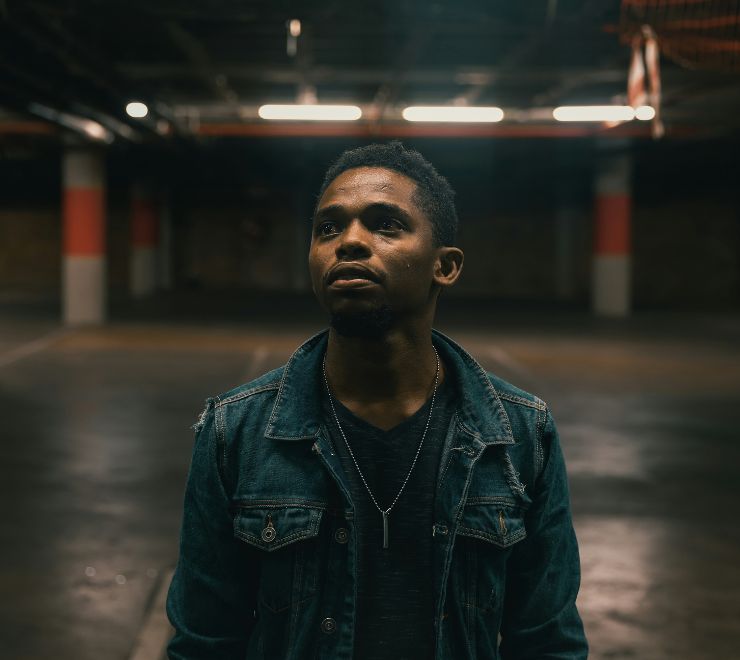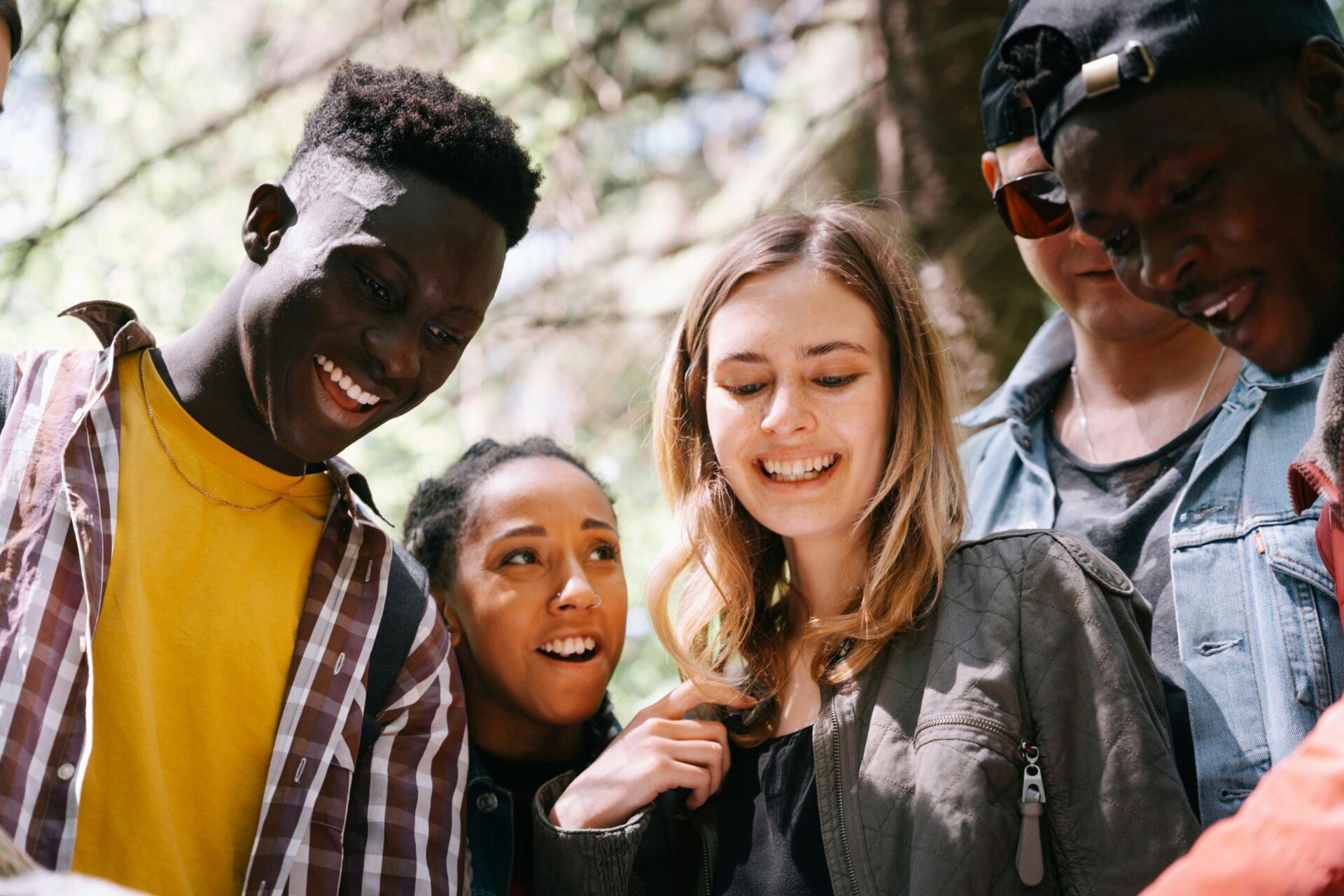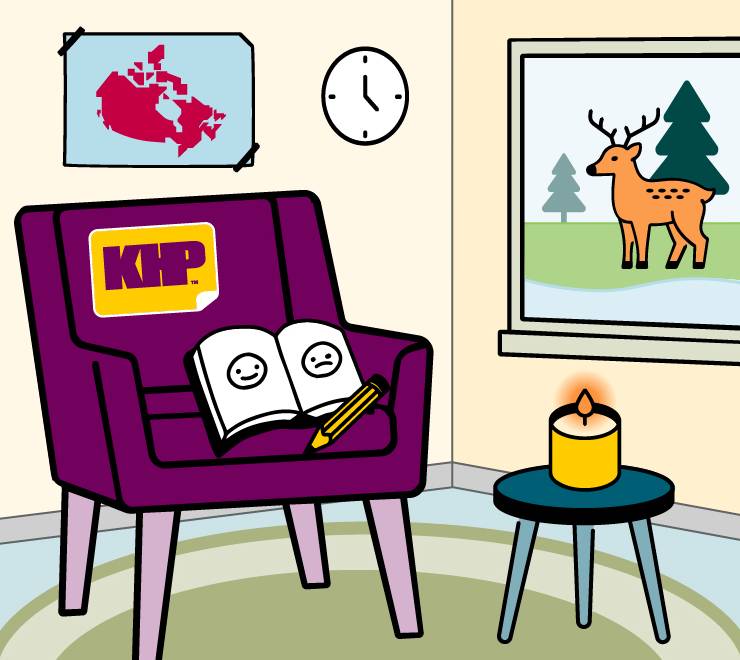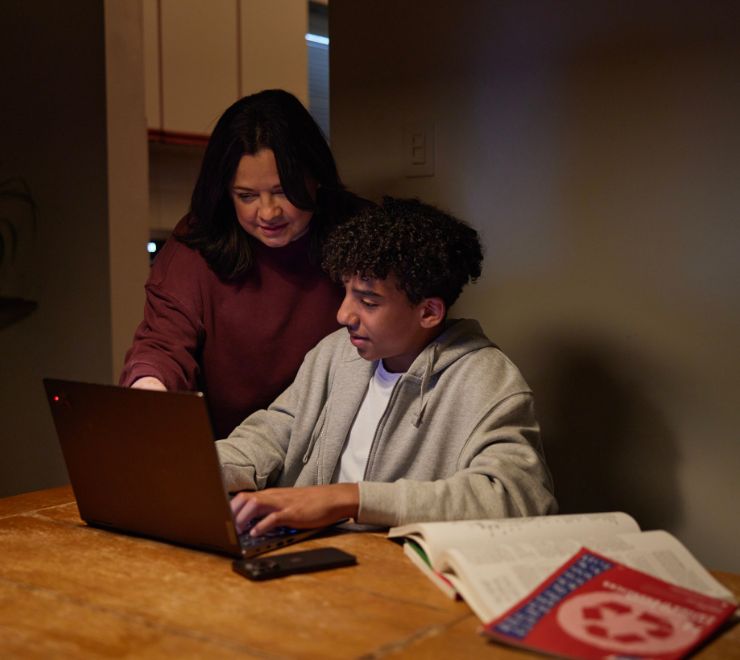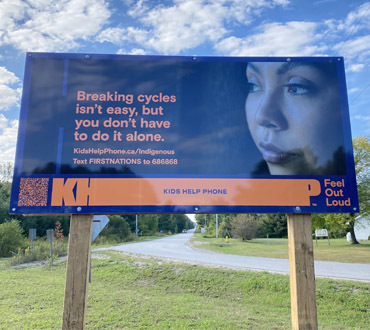I think the first time that I was conscious of going through depression symptoms was in grade 12. Because of the lack of information, I didn’t know that it was depression. But now as an adult, I can look back, I definitely know that it was depression that I was going through. The first sign was just a continued lack of interest in the things that I normally and generally loved and enjoyed.
From a really young age, like six, there was that infamous question “What do you want to be when you grow up?” And from when I was really little I’ve always said that I wanted to be an architect, and by grade 12 I was finally on track for that; I was in three architecture courses at school, I was in an apprenticeship, I was actually working, voluntarily, at an architecture firm and helping them. I did a big competition called ‘Skills Canada,’ and I was the regional champion in architectural drafting, I was pretty good.
The second half of my grade 12 year was when everything came to a front, what had been happening through childhood and through my early adolescence in regards to childhood abuse and the stresses at home, and for me, that triggered my depression. It had really built up, I’d been holding on to all of these emotions for years, and finally you know one Monday morning it came out publicly to friends, “My mom hits me.”
The really hard part about depression to express is how my physical appearance wouldn’t match how I felt inside. To everybody in the world, you know, I lacked emotion, I lacked feeling. I couldn’t feel. You know if somebody would say something funny — no reaction. Nothing. There would be something sad or upsetting and for the most part, I’d lack a response. It was a real disconnect because on the inside, there would be a response but it wouldn’t express itself physically — it wouldn’t come out.
And this just built up, you know further and further, and everything just kind of snowballed out of control because I wasn’t talking about it, I didn’t know how. From when we are really little, we don’t know how to talk, so we learn language, we learn literacy. We learn how to ask for help for day-to-day challenges. But with abuse, with depression, with mental health, there is still a disconnect. In grade 12, I lacked the literacy to really tell people everything that was going on, and at the same time I didn’t really have a dedicated care team yet, there was no one else there asking me, specifically what was going on. So I was really stuck, and that went on for the next several years.
Everything was building up and it started to affect my social life, my relationships, my work, everything. It’s like that there is this invisible force that is stopping you, from getting out of bed, from getting out of the front door of the house.
I hit rock bottom when I was 18, and I didn’t know where to turn. I remember I was eating a candy bar, and Kids Help Phone’s number was on it. I called, not because I was like “Oh Kids Help Phone! Professional counsellors, anonymous service! They are going to help me!” It was because I just saw the word “help.” I had no expectations going into my first contact. In fact, I didn’t want to call first. I went on the website and I left a message. Because I was like “Hey! I don’t know how to talk about this. I don’t talk about feelings. Nobody talks to me about feelings.” I remember reading the response from the counsellor — they were empathetic, they were supportive, and for me, what led to me calling was that they gave a glimpse of maybe that they know what’s going on.
I never thought I would like homework, but I got homework on that call, and it was something very simple, it was to make a list of five things I liked about myself. It was probably the toughest homework of that time.
I ended up calling back because I wanted to report on my list, and even that in itself made me feel lifted up a little bit, I felt energy for the first time. And there was a couple other calls that I made to Kids Help Phone, but what they did from there is connect me with somebody locally, a dedicated psychologist. Kids Help Phone was always encouraging and supporting in helping me navigate back to healthy relationships in my face-to-face world.
I started to understand that family isn’t just a biological connection, family are the people who are supportive of you, the people who are there to reach out their hand when you’re down. With a new chosen family, I started to reach out, and have mother figures, in my life that are amazing women. I started being social again. I got back into athletics. I got back into Dragon Boat, and I love Dragon Boat.
And through all of this, you know, every step of the way, the depression symptoms became less central in my life. The metaphor that would sum everything up would be from the Kids Help Phone counsellor, and they used the example of rear view mirror in a car: although our challenges and our adversities, we can’t eliminate them, we can’t just hit delete on our memories and our past, we can learn skills and we can talk about them. As we develop skills to manage them, we drive further away, and life goes on and moves forward. Although the challenges are still there, if we looked in that mirror they would be really tiny, they wouldn’t control our life anymore, they are not the big picture in our rear view mirror. We get our control back and for me that was the key to going into a state of recovery in depression.
There is this external stigma on guys that we don’t have feelings — the fact is, we do. Society doesn’t let us naturally talk about our emotions quite as much. But mental illness is a gender neutral challenge — depression is depression no matter what. Just because you’re a guy doesn’t exclude you from getting support. We need to get guys off the island — we lose too many lives to suicide because of potent thoughts of “It’s too late for me.”
Every time I see those numbers, I ask myself about the loss, the thoughts, the passions and inspirations and what that person might have solved, what that person might have created. It’s a tragedy.
I remember when at first I was going through these feelings and emotions, when I was 16, 17, 18, the only people on my team, were my friends and I put a lot of weight on them. Every time we hung out, I was always down and that’s no fault to me (so it’s not to put blame on yourself!) but I put a lot on my friends. Depression is an illness, it is serious. It’s because it’s an illness that it’s treatable. My friends didn’t know how to respond — they are not psychologists, they are not therapists, they are not counsellors — they are not experts in this.
Build your team to have multiple strengths. So realize, friends are friends, they are great at being social and they are a really important part to the puzzle of overcoming something like depression, but also realizing that if things are really, you know challenging, then there are other experts that really need to be on that team too. All of them have different expertise and different paths they are going to go down to support you. Maybe your team will have mentors, an adult, maybe it’s a teacher, or a community member. Having all these different people to go to with different questions freed up my friends, it let my friends just be my friends.
They really actually became champions for me, because what, what they do best is exactly what I needed. And I just allowed them to do it. So things like “Hey, come do Dragon Boat with us! Hey, let’s go to a movie, come over and play some board games.” Those were the freedoms that I needed from therapy because recovery doesn’t happen in an office.


